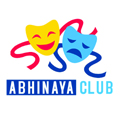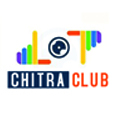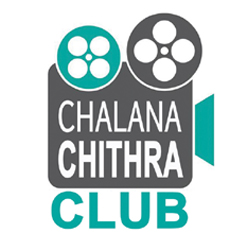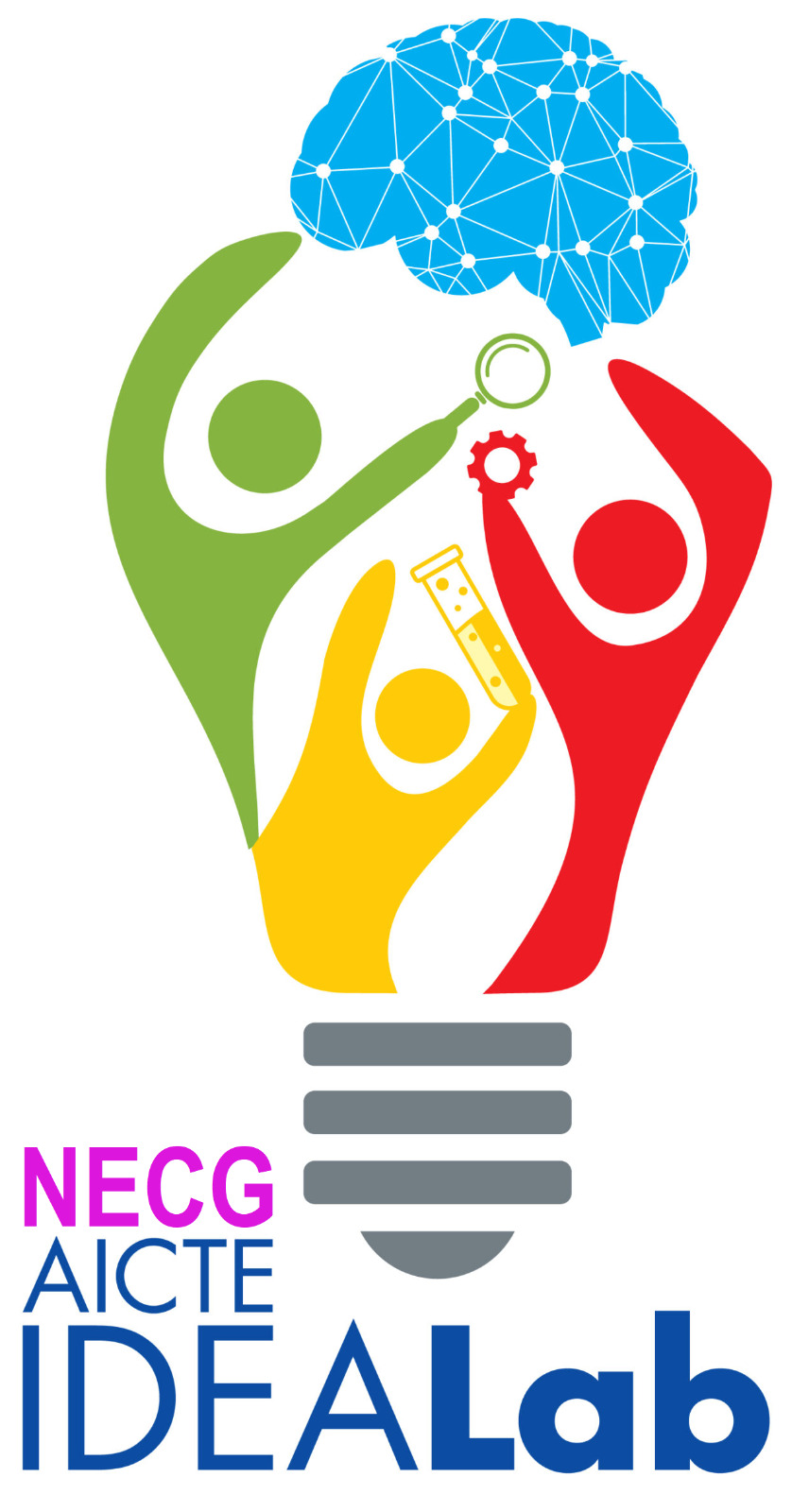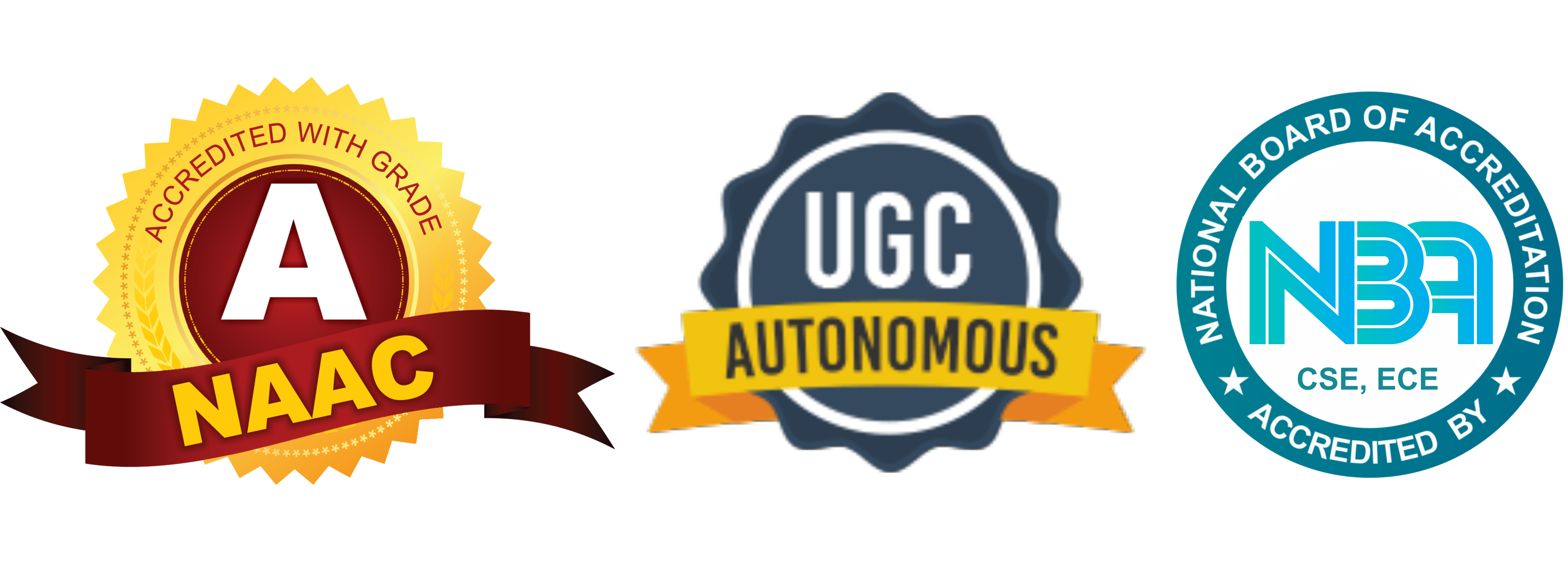UG PROGRAMMES
One of the oldest, respected and loved disciplines is the Civil Engineering. Civil demands a passion for design and a determination for execution (construction). At Narayana Engineering Colleges, we realize the importance of a civil engineer for the society and hence we impart education with responsibility to bring out the best in students. Civil engineers have a score of jobs to choose from – Government organizations such as PWD, Railways, Airways, Water Resource, Construction Companies, etc..
The department has got well equipped Labs
like:
| S.No. | Lab Name |
|---|---|
| 1 | Surveying |
| 2 | Strength of Materials |
| 3 | FM & HM |
| 4 | Engineering Geology |
| 5 | Geotechnical Engineering |
| 6 | Environmental Engineering |
| 7 | CAD |
| 8 | Concrete and Highway Materials |
| 9 | Applied Mechanics |
| 10 | Transportation Engineering |
Salient features:
|
|
Regular conferences and workshops for knowledge updation. |
|
|
Publishing research papers in reputed journals by staff and students regularly. |
|
|
Encouraging Extracurricular and co- curricular activities. |
|
|
Field Trips to survey Public & Private projects. |
|
|
Career awareness programmes by renowned persons. |
The Department of Electrical and Electronics Engineering was
established in the year 2001. The department offers
undergraduate programme in Electrical and Electronics
Engineering and Postgraduate programme in ELECTRICAL POWER
ENGINEERING (EPE). The department has developed exclusive well
equipped laboratories for suitable instruction and hands-on
experience as per AICTE norms.
Among these the Simulation of Electrical systems Laboratory
which was started in year 2003 has sophisticated software on
Power Systems, Power Electronics and Control Systems based on
MATLAB and SIMULINK.
The department also has:
| S.No. | Lab Name |
|---|---|
| 1 | Electrical Machines |
| 2 | Control Systems |
| 3 | Power Electronics |
| 4 | Ele.Systems & Sim |
| 5 | Circuits & Simulation |
| 6 | Ele. Measurements |
The Departmental library houses large volumes of various titles
which serve both the faculty and students.
The under graduate students of the department are well placed in
many national and international organizations. About 20%
students have attained MS (Master of Science) in foreign
countries and many others are placed in responsible positions in
various organizations across the globe.
Our teaching methodologies include:
Workshop Style:
- We use the most dynamic workshop style of training. We encourage students to actively involve in understanding concepts through hands-on, small-group and individual explorations, using real-time examples from the industry.
- This method enables us to make learners explore and master concepts in a more effective manner. It helps us to create a participative environment in which the learner is more likely to be involved and motivated.
- This style essentially creates learning experiences that guide, direct, and facilitate the acquisition of new knowledge by the learners.
Production Style:
- We adopt production style of teaching engage students in instantaneous and innovative learn–by-practical method. This can enrich the understanding levels of learners with the meaningful and practical approach.
- We assign time-bund group assignments and encourage them to learn the intricacies of electrical and electronics engineering
One of the most famous disciplines in the field of engineering is the Mechanical Engineering. Thanks to its emphasis on application of practical knowledge, it has always been attracting students to pursue a career. At Narayana Engineering College, we would want to take a step ahead as we bring to our students a combination of good faculty and excellent ability hence preparing them to take on the world of mechanical engineering. Career opportunities for Mechanical Engineers are aplenty – aerospace, electronics manufacturing, robotics, design, testing and evaluation,operations and maintenance and Public sector unions like Railways, ONGC and Indian Oil etc..
The department has got well equipped Labs like:
| S.No. | Lab Name |
|---|---|
| 1 | Engineering Work Shop |
| 2> | Machine Tools |
| 3 | Heat Transfer |
| 4 | Thermal Engineering |
| 5 | Manufacturing Technology |
| 6 | Metrology |
| 7 | Material Science |
| 8 | CAM |
| 9 | CAD |
Sailent Features:
|
|
Regular conferences and workshops for knowledge updation. |
|
|
Publishing research papers in reputed journals by staff and students regularly. |
|
|
Research oriented Project assistance by Ph.D holders. |
|
|
Training on tools and technologies to cater industry needs. |
|
|
Heat Transfer Lab |
|
|
Encouraging Extracurricular and co- curricular activities. |
|
|
Career awareness programs by renowned persons. |
The Department of Electronics and Communication Engineering was started in the year 2001. The department offers undergraduate programme in Electronics and Communication Engineering and POST GRADUATE PROGRAMME IN DIGITAL SYSTEM and Computer Electronics.
The Department of Electronics and Communication
Engineering maintains several equipped Laboratories for basic
and advanced Electronics and Communication.
Some of the important Labs under the
departments:
| S.No. | Lab Name |
|---|---|
|
1 |
Micro processor and Micro controller |
|
2 |
Microwave and Optical Communication |
|
3 |
Electronics Computer Aided Design |
|
4 |
Digital signal Processing |
|
5 |
Electronic Devices and Circuits |
|
6 |
Analog and Digital communication |
|
7 |
IC Applications |
|
8 |
Project Lab |
|
9 |
Pulse and Digital Circuits |
- The department has a separate Computer Centre with Pentium IV Systems equipped with software applications and suites such as MAT LAB, XILINUX ISE and Multi-SIM packages.
- The department has a well-equipped library with the wide range of book titles for the benefit of both students and staff. Many students have regularly been placed in top- notch Multinational Companies.
- The Department has a number of facilities with a substantial collection of teaching tools, instruments, equipment and computers for conducting experiments in different domains of Electronics and Communication Engineering.
- We emphasize to engage students in learning the concepts, the concepts, theories, technologies in a real-Lime practical approach by encouraging them to do extensive research in library, internet, industry through technical discussions, symposiums, technical paper submission , seminars and so on.
- We advocate students to adopt project activities to meet the need for engineering judgment, teamwork, careful planning and successful execution
The Department of Computer Science and Engineering was started
in the year 2001. The department offers undergraduate program in
Computer Science and Engineering.
The fast emerging scenario in the Information Technology
necessitates the Department to actively extend its research and
development activities.
The current course of study mainly focuses on areas such
as:
|
S.No. |
Lab Name |
|---|---|
|
1 |
Mobile Networks |
|
2 |
Software Engineering |
|
3 |
Computer Networks |
|
4 |
Information Security |
|
5 |
Compilers |
|
6 |
Computer Architecture |
|
7 |
Real-Time Systems |
|
8 |
Database Management Systems |
|
9 |
Automata Theory |
|
10 |
Human Computer Interaction |
|
11 |
Artificial Intelligence |
- The department has three separate labs and an exclusive departmental library with reference books and other research related material. Being a forerunner in the field, the Department is constantly modernizing its facilities to address the ever-increasing technological challenges.
- The department has rich domain experts and experienced professionals to impart high quality professional training in graduate level with emphasis on basic principles of Computer Science and Engineering. Thus, we foster leading edge research in the fast emerging technology areas.
- We inculcate professional etiquette, strong ethical values, innovative research capabilities and leadership qualities among the young minds so as to work with a commitment to the progress of the nation.
- We involve students in industry-oriented real-lime projects to learn the concepts in a realistic manner for better growth and effective career opportunities.
The CSM department at NEC Gudur focuses on building strong computer science foundations and modern, industry-aligned skills such as data structures, algorithms, databases, operating systems and in-demand tracks such as AI/ML, cloud & DevOps, data engineering, cybersecurity, and full-stack product development. Teaching follows outcome-based education with hands-on labs, mini-projects each semester, capstone projects, internships, and continuous industry interaction through workshops, guest lectures, and hackathons.
Key Features of CSM:| Area | What Students Get | How It’s Delivered |
|---|---|---|
|
Strong CS Fundamentals |
DSA, OS, DBMS, CN, SE, OOP, Compiler basics |
Concept → lab → mini-project pipeline |
|
Modern Stacks |
Full-stack (React/Node/Java), Python, Linux, Git, Docker basics |
Project-based labs & tool training |
|
AI/ML Readiness |
Python for data, ML workflows, model deployment basics |
Practical notebooks & datasets |
|
Cloud & DevOps |
Cloud concepts, CI/CD, containerization fundamentals |
Demo pipelines & cloud simulations |
|
Data Engineering |
SQL/NoSQL, ETL concepts, dashboards |
Hands-on with sample data lakes |
|
Cybersecurity Basics |
Secure coding, OWASP awareness |
Capture-the-flag style exercises |
|
Career Prep |
Aptitude, communication, interview prep |
Regular practice + mock interviews |
|
Industry Connect |
Guest talks, hackathons, internships |
MoUs/visits, problem statements |
|
Research & Innovation |
Student research groups, paper/poster guidance |
Mentored mini-research sprints |
|
Student Clubs & Events |
Coding club, AI club, design club |
Weekly meets, showcases, competitions |
Key Laboratories:
| Lab Name | Focus & Outcomes | Typical Tools/Software |
|---|---|---|
|
Programming & DSA Lab |
Problem-solving, algorithmic thinking, coding speed |
C/C++, Java, Python, GCC/Clang, VS Code, Online Judges |
|
Database Systems Lab |
Data modeling, SQL proficiency, normalization, transactions |
MySQL/PostgreSQL, SQLite, ER tools |
|
OS & Networks Lab |
OS concepts, process/threading, basic networking |
Linux, Shell, Wireshark, socket programming |
|
Full-Stack & UI/UX Lab |
Frontend+backend integration, REST APIs, auth, UX |
HTML/CSS/JS, React, Node/Express, Postman |
|
AI/ML & Data Science Lab |
EDA, ML pipelines, model evaluation & deployment basics |
Python, NumPy/Pandas, scikit-learn, Jupyter |
|
Cloud & DevOps Lab |
CI/CD basics, containerization, deploy simulations |
Git/GitHub, Docker, basic CI, artifact repos |
|
Cybersecurity & Secure Coding Lab |
Input validation, auth, basic pentest mindset |
OWASP ZAP (demo), static analyzers, secure coding kits |
|
IoT & Embedded Basics Lab |
Sensor data → edge processing → simple dashboards |
Arduino/Raspberry Pi (demo kits), MQTT simulators |
|
AR/VR & Visualization Lab* |
Immersive demos, 3D visualization, storytelling |
Unity/Unreal (demos), WebGL, Three.js |
|
Data Analytics & BI Lab |
Dashboards, KPIs, storytelling with data |
Python dashboards, basic BI tools |
Future Career Opportunities
The Department of CSM prepares students for diverse and high-growth career paths in the global technology landscape. Graduates can build careers as software engineers, full-stack developers, data analysts, and cloud/DevOps associates across IT services, product companies, and startups. With strong foundations in Python, Java, databases, networks, and AI/ML fundamentals, students become capable of contributing to cutting-edge areas like machine learning engineering, data engineering, cybersecurity, and IoT/edge deployments. The program also encourages entrepreneurship and innovation, enabling students to pursue their own technology ventures, research, or higher studies in premier institutions. This wide range of opportunities ensures that CSM graduates are industry-ready and future-proof, aligning with evolving workforce demands and emerging digital sectors.
Faculty details:
| Sl.No | Name of the Faculty | Designation |
|---|---|---|
|
1. |
Dr. J. Siva Rama Krishna |
Professor |
|
2. |
Mr. Patan Yejdani Khan |
Assoc. Professor |
|
3. |
Mr. N. Sairam |
Assoc. Professor |
|
4. |
Mr. P. Srihari |
Asst. Professor |
|
5. |
Mr. R. Ramaiah |
Asst. Professor |

